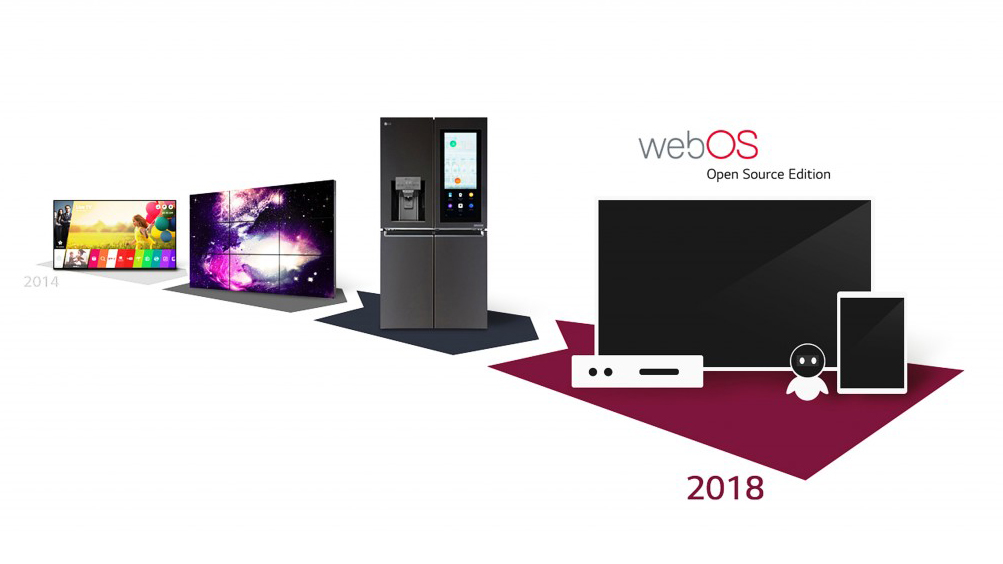LG steps up Samsung rivalry by making webOS platform open source
More developers, more lovely data

The definition of insanity is doing the same thing over and over again and expecting a different result - so the news that LG is looking to make webOS, its proprietary operating system, open source seems to have all the hallmarks of that mistake.
After all, WebOS was developed by Palm all the way back in 2009, moved to HP in 2010 when the company acquired Palm and an attempt to make it open source in failed, before LG bought the technology.
Well, history is repeating itself as LG has announced the webOS Open Source Edition, in a bid to get more devices on the platform.
When LG bought webOS, it used it as the underlying operating system for its smart TVs, and to good effect: it’s currently got in our list of the best smart TVs .
It’s since extended it to items such as refrigerators and other white goods (and even reportedly had plans to put it on smartwatch in 2016 before it clearly saw that Android’s Wear OS was the way to go) but now wants the world to experience webOS in a new way.
It makes sense - rival Samsung has Tizen, which is used in a similar way throughout its white goods and other devices (like its Gear Sport smartwatch) and having a competing system will entice more developers onto the platform, giving LG rich data to work from.
Big goals
LG is working with the South Korean National IT Industry Promotion Agency (NIPA) to encourage startups to pitch to the brand, which will shortlist the best and support them through to intended commerclialization - with the goal of having more WebOS devices on the market.
Sign up for breaking news, reviews, opinion, top tech deals, and more.
This is a pretty lofty goal from LG, with Dr. I.P. Park, Chief Technology Officer at LG Electronics confirming that it’s aiming to get webOS into the ‘very exclusive’ group of successful smart device operating systems… with Android the clear world leader.
LG believes it’ll be easier for developers to get to grips with webOS thanks to it being based on a Linux kernel (the same as Android), although the phrase ‘quite familiar’ doesn’t instil a huge amount of confidence.
From a nostalgia point of view, it’s good to see that webOS is still alive and kicking. In the early days of smartphones, the platform debuted with the Palm Pre, a phone that many still believe was superior to the iPhone in many ways and had a slick operating system that was more intuitive and usable than Android or iOS.
However, the fact it only existed on one phone, and the Palm Pre never got the same marketing traction as Apple’s device, meant that developers never rushed to the platform, and it eventually was scraped off from Palm when bought by LG.
It’s good to see that optimism was well-founded, as a decade later LG still feels confident enough in the platform’s foundation to still be using it despite it never achieving worldwide notoriety.
LG will be supporting developers looking to get involved with webOS Open Source Edition on a dedicated site, with forums and tools available there.

Gareth has been part of the consumer technology world in a career spanning three decades. He started life as a staff writer on the fledgling TechRadar, and has grew with the site (primarily as phones, tablets and wearables editor) until becoming Global Editor in Chief in 2018. Gareth has written over 4,000 articles for TechRadar, has contributed expert insight to a number of other publications, chaired panels on zeitgeist technologies, presented at the Gadget Show Live as well as representing the brand on TV and radio for multiple channels including Sky, BBC, ITV and Al-Jazeera. Passionate about fitness, he can bore anyone rigid about stress management, sleep tracking, heart rate variance as well as bemoaning something about the latest iPhone, Galaxy or OLED TV.